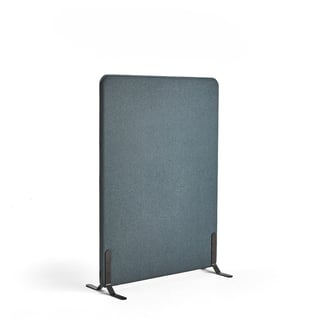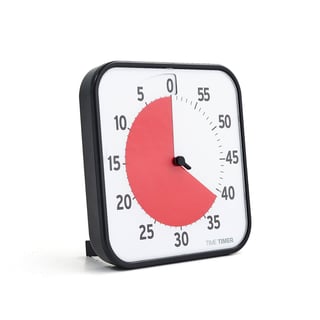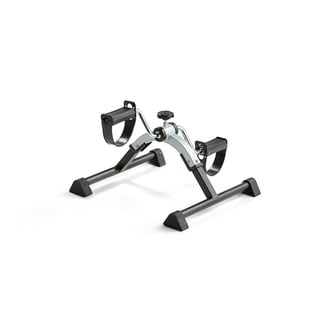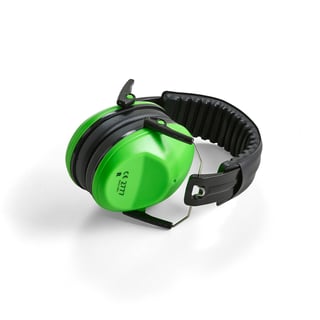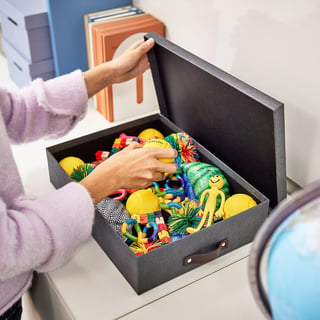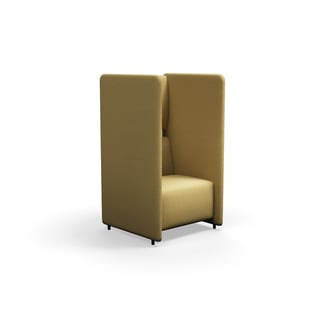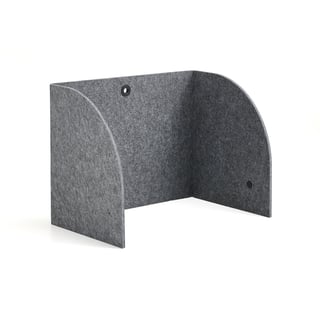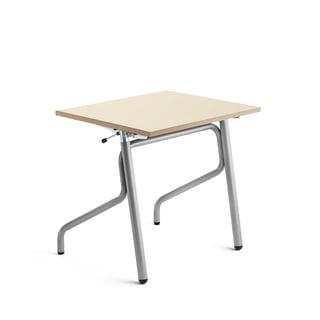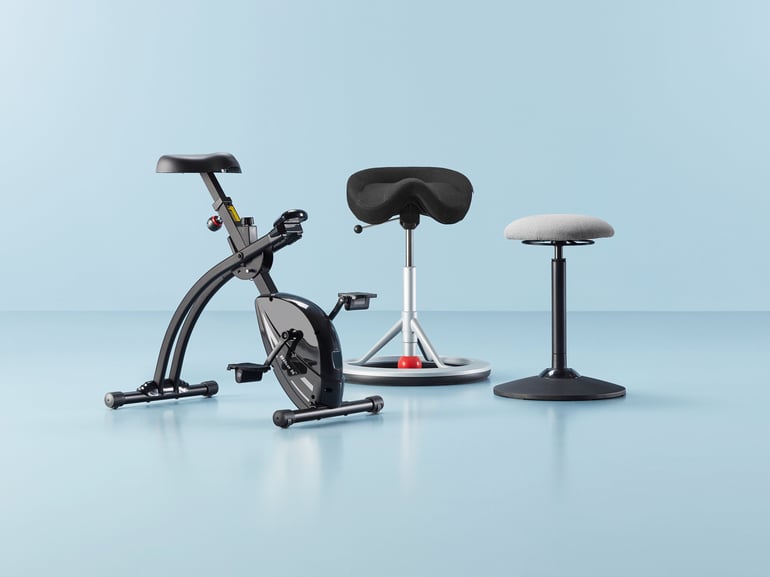- AJ Products IE
- Blog
- Ergonomics in the workplace
- Tips for furnishing a neurodivergent friendly classroom
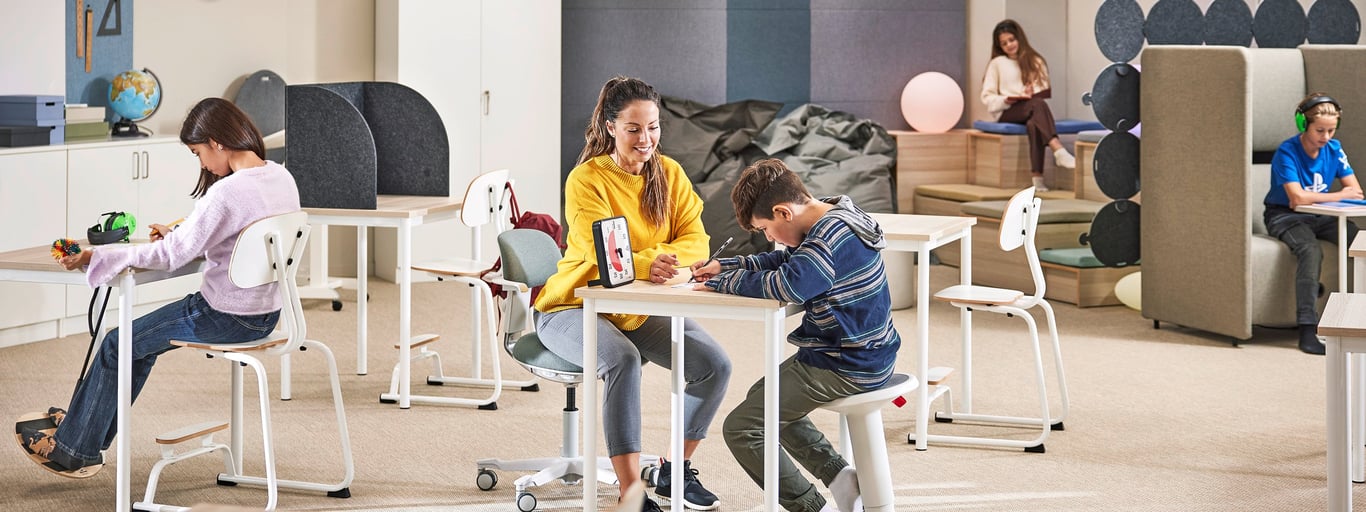
Tips to help make classrooms more neurodivergent friendly
The benefit of adapting the classroom for neurodiverse students
A school environment tailored to meet the needs of neurodiverse students benefits everyone. Clear organisation and effective structure; essential for students with ADHD, autism, and similar conditions, also enhances the experience for all students and staff members. Here are some tips to assist in creating a classroom that is adapted to accommodate neurodiverse needs.
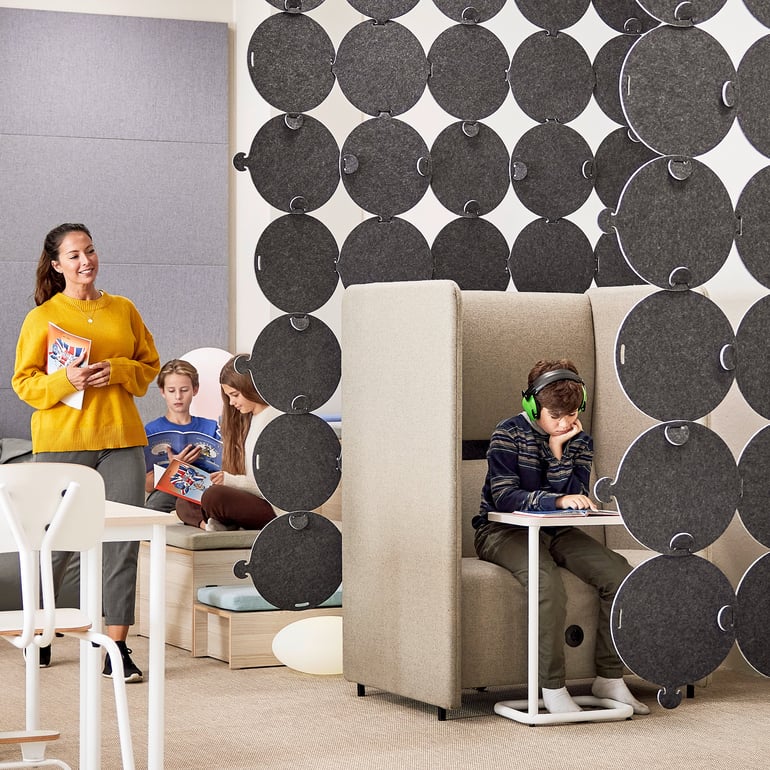
1. Divide the classroom in to zones
A classroom that is adapted for neurodiverse students should be designed to accommodate various learning styles and situations. By dividing the space into smaller zones, such as areas for individual work, group activities, and whole-class teaching, students can engage in diverse activities within the same lesson. This approach is particularly beneficial for neurodiverse students with who may struggle with lengthy lessons.
During whole-class teaching sessions, positioning students to face the blackboard / whiteboard helps signal where their attention should be focused. For individual tasks, providing secluded areas—whether in their seat, a booth, or a separate room—helps minimize sensory distractions, allowing students to concentrate more effectively on their work.
2. Wide variety of workspaces
Offering a variety of seating options facilitates individually tailored teaching approaches. Students can select the seating arrangement that best supports their concentration, whether it's an armchair or a desk bike.
Alternative seating furniture adds a refreshing change to the classroom environment. For students who struggle with staying seated, incorporating movement-friendly options like balance stools or pilates balls can alleviate anxiety and restlessness, promoting a more comfortable learning experience.
Introducing standing desks provides benefits for all students, as it encourages blood circulation, boosts energy levels, and enhances concentration. Adjustable desks can be utilised in whole-class setups or secluded booths, offering flexibility throughout lessons.
Using floor screens helps create a focused and safe environment for students. These flexible and portable screens effectively minimize distractions, allowing students to concentrate on tasks while remaining within the classroom setting. The mobility of these screens enables students to easily relocate while maintaining a sense of belonging within the classroom community.
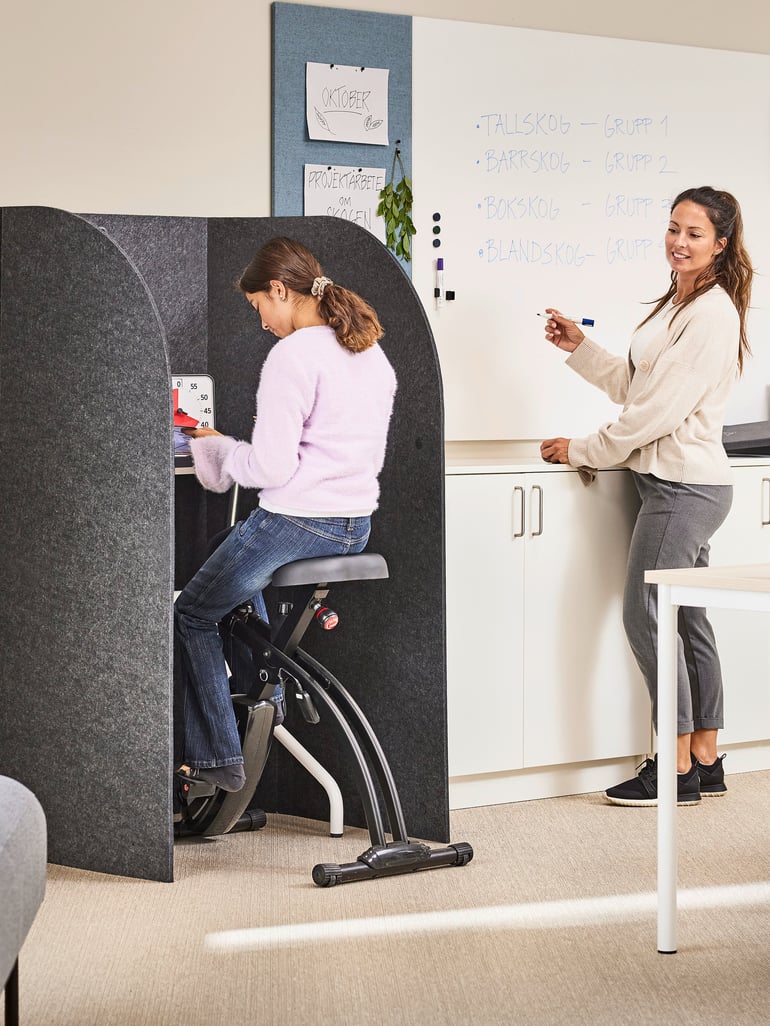
In addition to full-class seating, there should also be:
- Groups of tables for teamwork
- Places for individual work
- A more social space for gathering
- Comfortable seating for reading and relaxation
- A separate room for alone time or one-to-ones
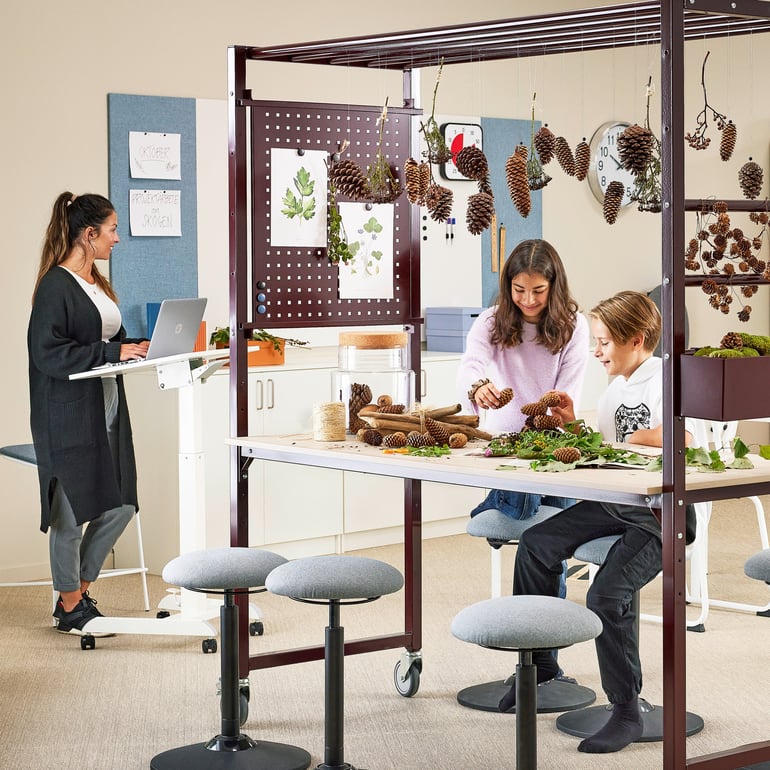
3. Furniture for various activities
Group Tables
Encourage collaborative learning by providing opportunities for students to work in pairs or groups. Group tables create a space for collaboration, ensuring inclusivity and active participation from all students. This setup enables teachers to easily monitor students' progress and offer support as needed, promoting a dynamic and supportive learning environment.
Reading Corner
Neurodiverse children may find it easier to focus when they can sit softly and undisturbed, for example in a bean bag or sofa. Soft seating also helps to dampen the noise level in the classroom and create a calmer atmosphere.
Gathering
A soft floor area, using carpet or matting, can serve as a gathering place for short breaks or activities with the whole class.
Furniture that can be added to the classroom, along with tables and chairs:
- Portable screens
- Earmuffs
- Desk pedals
- Foot swing
- Sensory toys or aids
- Carpets / Matting
4. Reduce sound and noise
Maintaining a comfortable sound level within the classroom is essential for creating a better learning environment for both students and teachers. Introducing fabrics and upholstered furniture helps to absorb sound, creating a more pleasant atmosphere. Incorporating items such as curtains, cushions, carpets and armchairs can effectively reduce noise levels and minimize echoes in the room.
To further reduce noise disruptions, ensure that all chairs have pads under the legs or opt for chairs wheels. This helps to prevent scratching noises on the floor, which can be highly distracting. For some children, blocking out sound entirely with earmuffs may be necessary, while others may benefit from background music to aid their focus. Adapting the classroom environment to accommodate various sound preferences helps to create a more inclusive and supportive learning space.
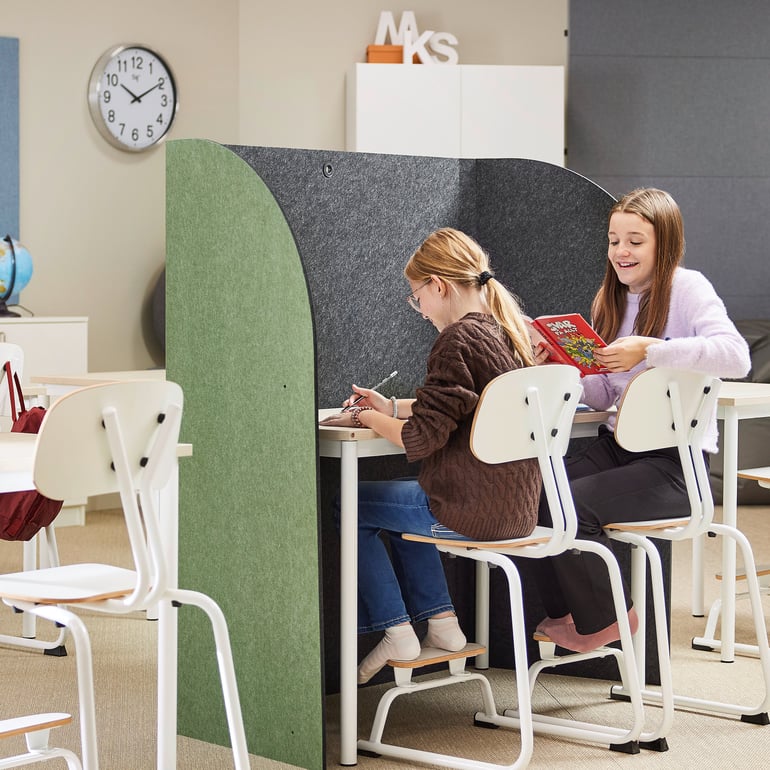
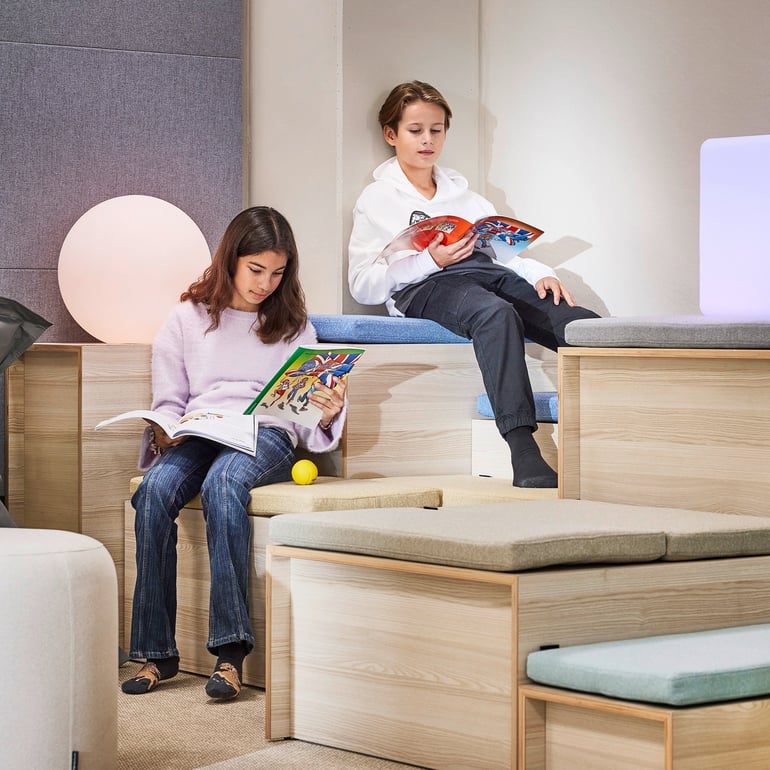
5. Minimize issues with lighting
Create a comfortable lighting environment in the classroom to minimize distractions for everyone. Replace fluorescent tubes with LEDs which are less likely to flash. Reduce sharp shadows, as they can strain the eyes. Installing multiple light sources evenly throughout the room ensures uniform illumination and reduces glare.
TIP! Decorate with muted colors and earthy tones, for example green and brown. Uniform colors do not compete for the student's concentration and contribute to a study-promoting atmosphere.
6. Sensory Toys
A valued aid in the neurodiverse classroom are stress balls and similar fidget toys that keep restless hands busy. They can be part of the basic offering in every classroom so that no classroom stands out. Let all children use these tools so that it's normalised.
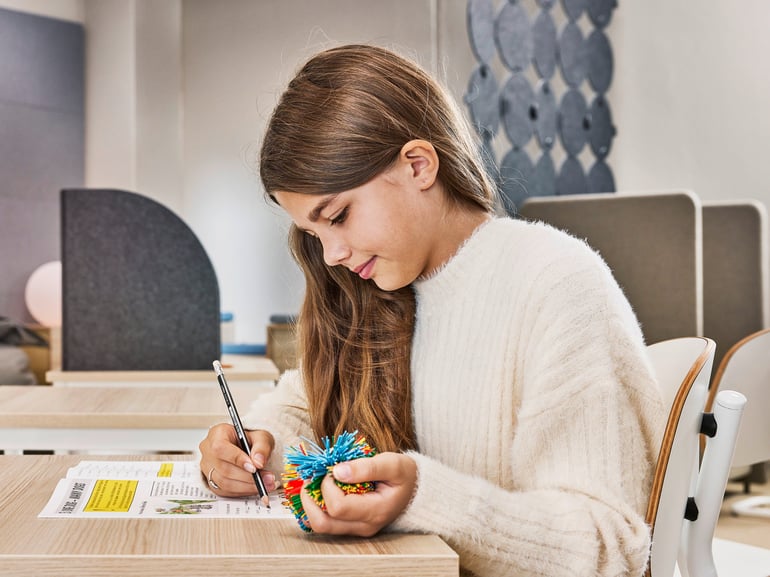
Start at the beginning
The process of adapting school environments for neurodiverse students can begin at the design stage itself. It's essential to consider how the layout influences behavior. For instance, a long corridor may inadvertently encourage running, leading to confusion for children who struggle to understand why running isn't allowed. Similarly, a large, open dining room with echoing sound may inadvertently promote loud speaking.
By designing the environment in a different way, it is possible to control the behavior. A hotel lounge has subdued lighting, carpets and soft furniture to signal a low level of conversation – the same thinking can be applied at school.
Practical tips for furnishing a neurodivergent friendly school
- Write down the plan. Explain the purpose of the current lesson and go through the tasks so the student knows how much they are expected to do and for how long..
- Keep organised. Have everything in its right place. Storage that is clearly marked creates less mess. Things in front of you can be distracting, but when they are put in their respective boxes, visual distractions reduce.
- Seating arrangements. Ensure nobody is sitting alone and have the teacher decide where each student should sit, minimizing any anxiety for students.
- Help with time. A clock with a timer that shows the remaining minutes is clear and good to have in the classroom. It tells students how long they are expected to focus.
- Student artwork.Teaching is a battle for attention, place artwork or other pieces out of direct sight. Move student projects to the back of the classroom.
- Train staff. Furniture and planning can only go so far. Staff should be trained to help neurodiverse students.
Summary
Adapting the classroom for neurodiverse students has advantages for all. The easiest way is to divide the classroom into zones. It gives students the opportunity to find a workplace that works best for them and to vary their day. The auditory and visual environment is very important. In addition to improving the furniture, knowledge of neurodivergence and good planning are crucial.
We can help!
Do you need inspiration or help with a project to adapt your school? AJ Products has a dedicated team of experts who are happy to be of service.
Call us on 01 281 1700
Contact Us
FAQ
- In a neurodiverse-friendly school or classroom, all students have the opportunity to meet academic standards and thrive, regardless of whether they have a neurodivergent disagnosis. Both the physical environment and teaching methods are tailored to support students who require assistance in managing a full school day or focusing during lessons.
- Neurodiverse people may have difficulty with any, but not all, of the following -
- Concentration / maintaining attention
- Interacting with others
- Understanding social cues
- Learning and memory
- Motor skills
- Speech or writing
- Planning or keeping organised
- Difficulty prioritising tasks
- Impulse control
- ADHD, ADD, Autism (ASD), Tourette syndrome, OCD (obsessive compulsive disorder) and speech and language disorders, e.g. dyslexia and dyscalculia. Covariation, i.e. having more than one diagnosis, is common.
- ADHD, Autism and Dyslexia are the most common neurotypes in Ireland.
